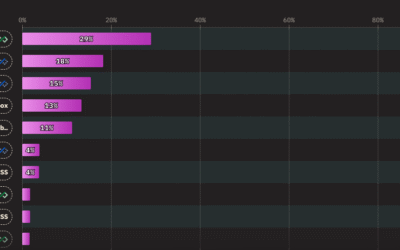This month we bring you insight from Ross Boucher of 280 North, makers of the Cappuccino Framework, 280 Slides and the eagerly anticipated Atlas.
 What is your company called and what do you do?
What is your company called and what do you do?
I founded 280 North with my two co-founders, Francisco Tolmasky and Tom Robinson. Together, we’re building the next generation of applications for the web.
Our first app, 280 Slides, is a web presentation tool that makes it easy to make compelling presentations right from the browser. It’s a great example of the kind of truly rich applications we want to bring to the web.
280 Slides is built with Cappuccino, our open source web application framework. With Cappuccino, and other projects we’re working on, we’re creating tools that will help everyone build these kinds of applications in the future.
What was the “big bang” that lead you to start your company?
280 North came out of a more gradual realization. As college students, we wanted to build web applications, but were frustrated with how terrible the experience was everywhere on the web, for users and developers. We started working on the problem on the side, which we did for years, until ultimately we decided to pursue our goals full time.
The one thing that did push us over the edge was getting into Y Combinator, a seed-stage funding organization founded by Paul Graham. YC has been a huge help at every stage of our business so far, and we’re incredibly glad to have been part of the program.
What makes your product or service stand out in the crowd?
For us, the most important part of the applications we build is the user experience. We’re taking the kind of rich interactive experience users are accustomed to on the desktop, and bringing that to the web. Our products
What did you do before this came along?
When I started 280 North with my co-founders, I left Apple where I had been working as an engineer on the iTunes Store. Francisco was also working for Apple at the time. Before that, we were all students at the University of Southern California in Los Angeles.
What was the single biggest hurtle to getting your company launched?
Finding the time to pursue your own goals while still maintaining a full time job is difficult. There are certainly people who pull it off, but it doesn’t come easy to anyone. For us, if we hadn’t taken that leap of faith and pursued our idea full time, I doubt we would have gotten far.
What has been the best method or tactic for advertising your company?
Without a doubt, word of mouth. Our work has gotten a lot of attention for two reasons: first, we build quality products that people enjoy using; and second, we tend to do things that seem a little crazy, especially to technology people. In both cases, people start talking through social websites like reddit, Hacker News, and Twitter, and the information spreads organically without much effort from us.
What’s your prediction for the “future of the web”, what’s the next big thing?
There’s no one “future” for the web. I think we’ll see people take a variety of paths, many of which will be successful. I’m pretty confident that one of those will be rich, desktop-class applications running in the browser, which is why we’re building our business.
What are the long-term effects of all the “social networking” products going to be?
I think it’s still too early to tell. There’s no doubt that parts of the “social networking” explosion on the web have brought real value into the world. Certain types of communication are becoming much more efficient, and effective. On the flip side, I think many of the current social websites may just be fads that will fall out of favor as soon as the next big thing comes along.
What advice can you give for new entrepreneurs who are gearing up to produce their big idea?
Paul Graham likes to give the advice, “make something people want.” This is about as concise as you can get it.
What should they watch out for?
Watch out for stop energy. There will be plenty of people telling you your idea is stupid, telling you to give up. Ignore these people. Take in constructive criticism, learn from your mistakes, but don’t let other people discourage you. It sounds trite, but sometimes the most important thing you have to do is just not give up.
What should they embrace?
Embrace hard problems. When we tackle the hard problems, we usually find that they weren’t nearly as hard as they seemed when we started, and that just taking the first step already puts you ahead of much of your competition. Plus, solving hard problems is incredibly rewarding.
What is your favorite book? Slaughterhouse Five
What is your favorite movie? The best film I’ve seen in the last year was Man on Wire.
Who is your favorite musical artist (or What musical artist are you listening to the most right now?) Dave Brubeck
Ross has a M.S. in Electrical Engineering from USC. After graduating, he worked at Apple on the iTunes Store. His team was responsible for music recommendations, charting, and search. At 280 North, he splits his time between server and client-side code, including the text system in 280 Slides. Ross also keeps a great blog at rossboucher.com and you can find him on twitter as well @boucher.





0 Comments